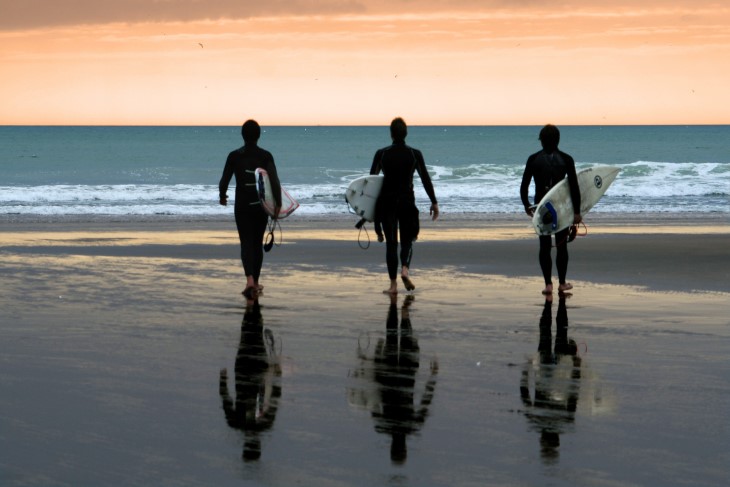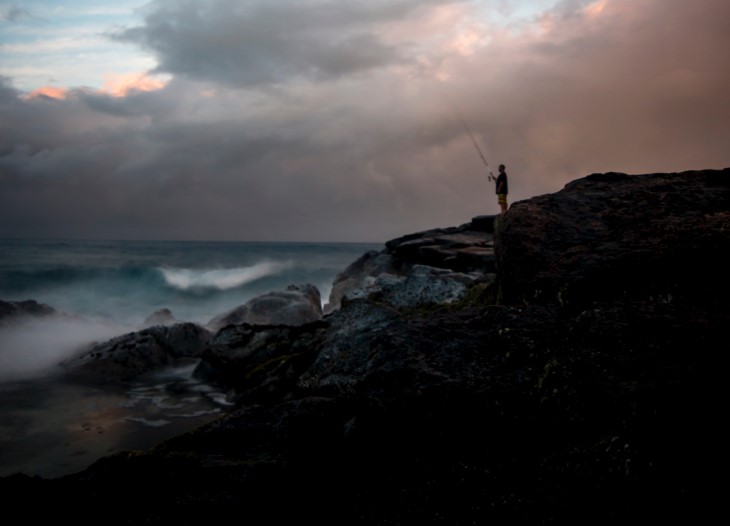Going blue for World Drowning Prevention Day

Landmarks across the country are being lit up in blue to mark World Drowning Prevention Day and raise awareness around water safety. Last year, we accepted over 18,000 water-related injury claims and there were 90 drownings.
The landmarks include the Canopy Bridge and historic Pohutukawa tree in Whangarei in the north, right down to the Te Pou ō Mata Au (War Memorial and Community Centre) in Balclutha.
The World Health Organisation’s (WHO) theme this year for World Drowning Prevention Day is “Seconds can save a life.”
The WHO website says drowning is often a phantom lurking in the shadows, ready to pounce when least expected.
“Drowning is abrupt, silent and shocking, with people often not realising it’s happening until it’s too late.”
The world is coming together to raise awareness for drowning prevention. ACC and our community partner Water Safety New Zealand are challenging people to stay safe during the winter months.
In the first six months of 2024 (1 January to 30 June), Water Safety New Zealand has provisionally recorded 38 preventable drownings across Aotearoa.
This is down from 53 preventable drownings at the same time last year, which included six drowning deaths due to Cyclone Gabrielle.
In 2023, 90 New Zealanders suffered preventable drownings with 58 per cent of those men over the age of 45.

Float and stay calm to survive
“We’re still seeing an unacceptable number of preventable deaths, especially among older males who continue to make risky choices around water,” says Water Safety New Zealand chief executive Daniel Gerrard.
“We know a lot of New Zealanders love to enjoy the water throughout the winter months, and we want to encourage that in a safe and responsible manner.”
Rather than panic, Daniel encourages people who fall into the water to lie back, relax and float.
“Floating on your back gives you the best chance of survival if you’re in trouble in the water,” he says.
“The four key tips to remember are float, breathe, signal and survive.”
Make smart choices before jumping in
In 2023, ACC accepted 18,351 water-related injury claims, which came at a cost of $64 million to help people recover.
During the winter months (June, July, August) in 2023, the activities with the highest number of injury claims were surfing (926), swimming (883), swimming in a pool (316) and boating (126).
ACC injury prevention leader James Whitaker says World Drowning Prevention Day is an opportunity to be more mindful of the risks in and around the water.
“A drowning is a devastating event for any whānau and community, and our hearts go out to every family who has lost a loved one,” he says.
“Most of these tragic drownings are preventable if we take the time to consider the risks.”
James stresses the importance of following the Water Safety Code.
Maritime New Zealand says anyone heading out on a boat should follow the Boating Safety Code.
Of the 90 drownings in 2023, 26 were at beaches, 24 in rivers, 11 in pools and 11 offshore.
“Far too many New Zealanders are drowning, and these events are preventable,” James says.
“If we take time to assess the risks and make smart choices before we jump in, we can keep on doing the things we love.”

How to float
• Float first – Lie back with your ears underwater, chin up
• Breathe normally – Slow your breathing to help you calm down
• Signal for help – Raise your arm, shout for help
• Survive by swimming or floating – Float when it’s not safe to swim
Water Safety Code
• Be prepared
• Look after yourself and others
• Be aware of the dangers
• Know your limits
Boating Safety Code
• Wear your lifejacket
• Take two waterproof ways to call for help
• Check the marine weather forecast
• Avoid alcohol
• Be a responsible skipper





